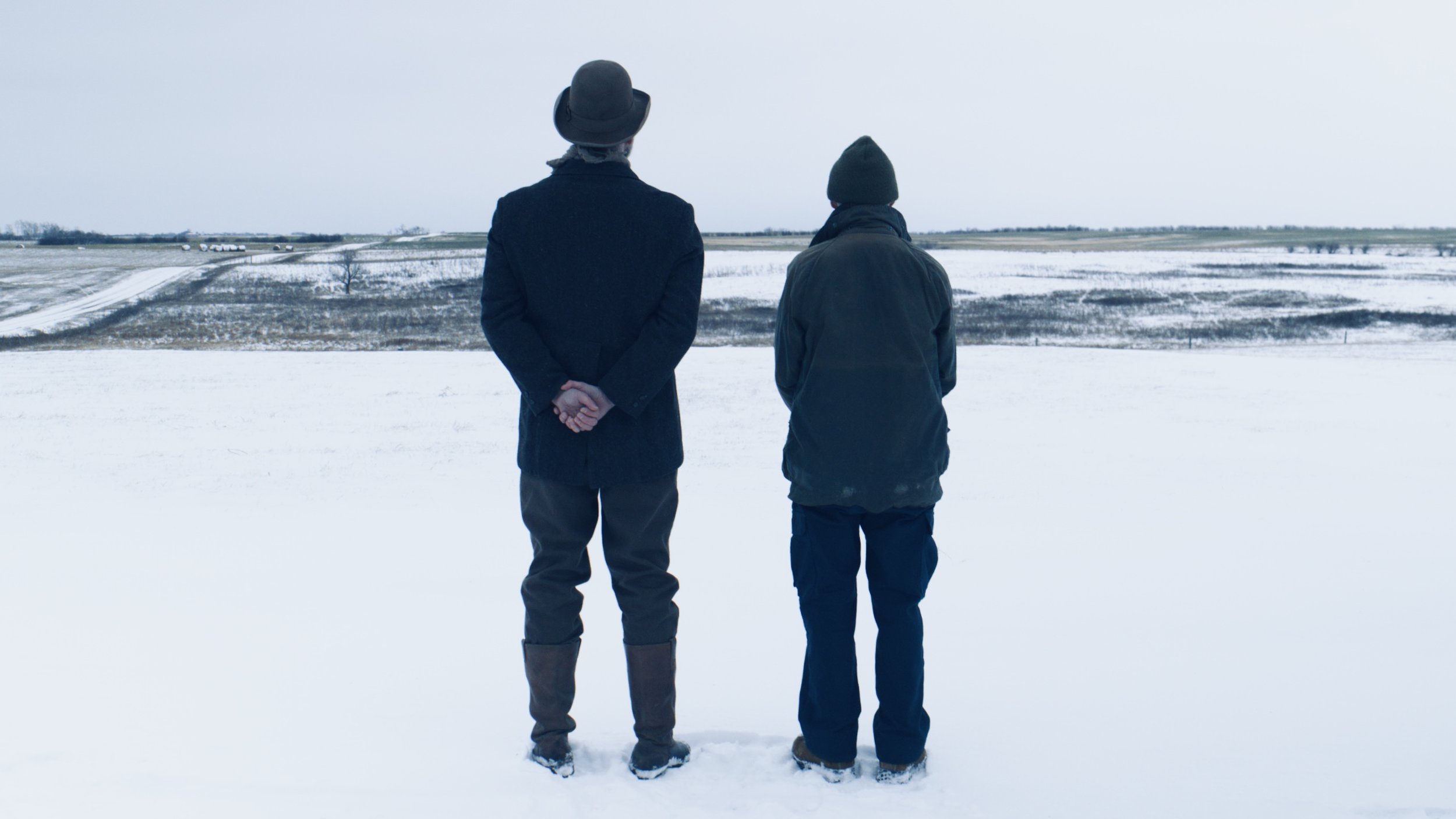Film review: Carl Bessai travels through time and midlife crisis in Field Sketches
Moving from architectural marvel to frozen cabin, the film mixes bitter humour with a poetic fugue fuelled by familial trauma

Field Sketches.
Field Sketches is at the VIFF Centre on April 12 and 14 as part of Canadian Film Week; both showings include a Q&A with the filmmakers
IN CARL BESSAI’S most personal film, a widowed architect returns to the family farm in Saskatchewan and encounters the ghosts of his past.
Vince Gale is the proxy for Bessai himself, and not for the first time, but watch closely during a flashback set at the East German border. If you’re eagle-eyed, you’ll get an exact sense of the director’s proximity to the material. For a few decades, Bessai has managed to maintain a career in film and television while producing his own independent projects, so we’re not surprised when Gale’s character, Peter, faces a midlife crisis over the value of his own work or the compromises he’s made on the road to success.
When Field Sketches begins, he’s recently quit his high-end firm to strike out as a sole operator. It immediately costs him two clients (played by Lauren Akemi Bradley and Ben Immanuel in one of the film’s strongest and most bitterly funny scenes). The losses don’t end there: his live-in partner (Sara Canning) decides she no longer wants to live-in, and then Peter has to break it to 20-something daughter Molly (June Laporte) that he needs to sell the home he built for his family—which happens to be played by a mid-century masterpiece located in the British Properties, designed in real life by master architect Ned Pratt.
Divided into four chapters, Field Sketches then relocates to a wintry Saskatchewan, where Peter encounters an against-type Ben Cotton in two roles, one of them being Henry David Thoreau, along with Canning (again) as a small-town bartender. Isolated in a frozen cabin, Peter—as you can guess—enters into a fugue of past lives and familial trauma, which Bessai handles with a certain poetic élan, and which Gale matches with his unkempt and slightly bewildered demeanour.
The filmmaker is obviously working through something here, so it’s forgivable if things don’t entirely cohere in the end. ![]()
Adrian Mack writes about popular culture from his impregnable compound on Salt Spring Island.
Related Articles
A panel discussion with workers and community advocates takes place after the VIFF Centre screening
Mareya Shot Keetha Goal: Make the Shot won a spot as best B.C. feature, plus much more as Surrey-based event hands out cash and development support
Moving from architectural marvel to frozen cabin, the film mixes bitter humour with a poetic fugue fuelled by familial trauma
Vancouver director Ben Immanuel drew from his acting students’ real experiences to craft a funny and poignant collaborative film that was years in the making
Program includes Vancouver premieres, returning classics, and a tribute to Tracey Friesen and free screenings on National Canadian Film Day
New paraDOXA initiative will highlight experimental films like To Use a Mountain
Director Mahesh Pailoor and producer Asit Vyas tell the impactful true story of a young man diagnosed with terminal cancer
In Aisha’s Story, a Palestinian matriarch uses food for generational healing, while Saints and Warriors follows a Haida basketball team
Event presented by SFU School for the Contemporary Arts features a screening of In the Garden of Forking Paths
First-time film actor Keira Jang takes a leading role in Vancouver director Ann Marie Fleming’s dark “satire” about a bucolic post-collapse future that comes with a catch
Stunning cinematography and a compelling story make documentary about freediver Jessea Lu a breathless watch
At The Cinematheque, Nanos Valaoritis’s memories of a long life in poetry are like a museum you never want to leave
Program includes Boy on a Dolphin, The Travelling Players, On the Waterfront, and more
Sepideh Yadegar’s film tells the story of an Iranian international student photographed at a Women, Life, Freedom protest in Vancouver
The series presents 14 titles by the master of nonfiction film, rarely seen in the cinema
Housewife of the Year unpacks a long-running Irish TV show, while There’s Still Tomorrow follows a working-class Italian woman in the 1940s
Director Sepideh Yadegar’s debut feature follows Iranian international student Sahar as she stands up for women’s rights in Vancouver
At Vancity Theatre, Christopher Auchter’s film takes us back to the 1985 protest that led to a historic win
La Femme Cachée faces buried trauma; En Fanfare celebrates the power of music; and Saint-Exupéry tells an old-style adventure story
Sweeping biopic returns with nostalgic songs and atmospheric cinematography
Second-annual event opens with Mahesh Pailoor’s Paper Flowers and closes with Enrique Vázquez’s Firma Aquí (Sign Here)
























